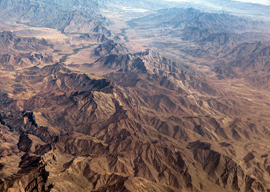
June 21, 2017

Source: Bigstock
My journalist friend who calls himself Paleo Retiree at his Uncouth Reflections blog was an old friend of Hastings from their days at Newsweek. He interviewed the dead man’s brother Jonathan Hastings, who confided that just before the crash he had fruitlessly flown to Los Angeles to talk his brother, who was going through another manic episode, into trying rehab.
Hence, the Hastingses don”t have any suspicions of foul play.
Unfortunately, War Machine doesn”t make Michael Hastings a major character in the film, just using him as the smart-aleck narrator. The screenplay by Australian director David Michôd (best known for the 2010 crime drama Animal Kingdom) botches the basic show-don”t-tell logic of moviemaking by having the narrator tell us in the opening minutes that McChrystal’s 2009 demand for additional troops was bound to fail to win over the hearts and minds of Afghans because, after all, we”d invaded their country.
Granted, that should be obvious, although it turns out to be the kind of awareness that only macho men like Hastings grasp: Of course you”d be angry if some other gang of guys took over your turf. But it would have made a better epiphany than an assumption in Michôd’s movie.
The cast of War Machine is highlighted by Sir Ben Kingsley (of Gandhi fame) as Afghanistan’s immensely cynical president Hamid Karzai. Topher Grace of That “70s Show plays McChrystal’s unctuous PR man. Anthony Michael Hall portrays a character loosely based on Donald Trump’s former national security adviser, Michael Flynn. (Hall was a hugely popular geeky teen star in “80s films like National Lampoon’s Vacation, Sixteen Candles, and The Breakfast Club, but he had the misfortune to suddenly grow into a hulkingly large man who no longer looks at all like his more famous former self.)
Sadly, War Machine is the first outright failure in the new genre of movies made from frequent flier nonfiction books. Admirably, Brad Pitt has used his celebrity to help get produced implausible but successful movies such as Moneyball and The Big Short. Unfortunately, War Machine proves a bridge too far.
The biggest problem with War Machine is that Pitt, who has been a reliable star since Thelma and Louise over a quarter of a century ago, is terrible as General McChrystal. Pitt’s affected growling voice is painful to hear.
Even worse, Michôd doesn”t give Pitt any insightful or charming lines. To Hastings, McChrystal was “a highly intelligent badass.” Yet Michôd doesn”t show any evidence of McChrystal’s intelligence in his movie. His screenplay is the opposite of Francis Ford Coppola’s for Patton.
What should be done about Afghanistan?
The strategic problem is that America doesn”t want its traditional enemy, the Taliban, to be seen as winning.
Still, continuing to base troops in Afghanistan makes the U.S. hostage to the untrustworthy Pakistanis for permitting transit across their country, while giving the Iranians and Russians a cheap way to annoy the U.S. by supporting the Taliban.
And the Taliban appear to represent the primary political aspirations of the largest tribe in Afghanistan, the Pashtun.
After sixteen years out of power, the Taliban have been punished heavily for their criminal negligence in providing hospitality to al-Qaeda. However, no evidence has emerged that the Taliban took an active role in plotting 9/11.
And, unlike ISIS, the Taliban appear to have learned their lesson not to be culpable in terrorism in the West. For instance, the Taliban’s 2012 commando raid on a NATO base in southern Afghanistan that wrecked eight Marine Corps jets (the worst damage American air power has suffered since Vietnam) was a fair fight of brave soldier versus brave soldier.
Just as America and Vietnam get along today, the U.S. and Afghanistan should be able to get along in the future. (And if we can”t, well, they are just Afghanistan, the most famously lousy country in Eurasia.)
So, my suggestion is that the Taliban should be prodded to merge with some other Pashtun group and then change their names to something innocuous like the United Afghan Front.
The U.S. could then wash the dust of Afghanistan off its hands.